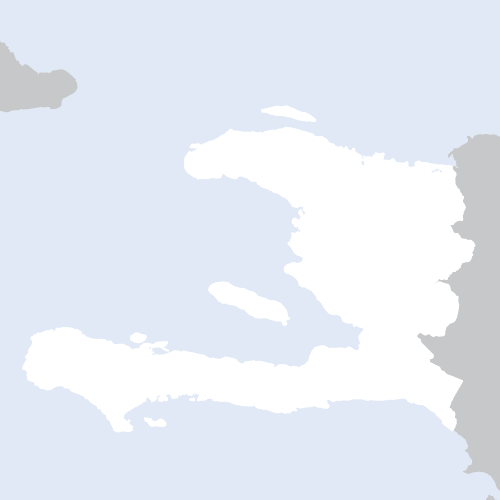5596th Meeting (AM)
SC/16117
The Security Council decided today to extend the mandate of the United Nations Integrated Office in Haiti (BINUH) until 31 January 2026, as Council members spotlighted the Office’s critical support to a country in the throes of multidimensional crisis.
Through the unanimous adoption of resolution 2785 (2025), the 15-member organ also expressed its intention to immediately consider the recommendations made by the Secretary-General on 24 February 2025 regarding options for the possible role the UN could play to sustain security and stability in Haiti. Further, the Council reaffirmed its commitment to support a comprehensive solution, led and owned by Haitians, that addresses the root causes of the current multidimensional crises in that country.
After the adoption, the representative of the United States said that the reauthorization of BINUH’s mandate is an important step towards democratic transition in Haiti. “Supporting the security of elections — and the participation of all sectors of society — is key to all sustainable political progress in Haiti,” she emphasized, adding: “Without BINUH, realizing the vision of a stronger, more-resilient society would be less likely.” Also stating that BINUH represents “one element of an international response to Haiti’s insecurity”, she urged support for the Office, Haiti’s Government, the Multinational Security Support Mission and regional organizations “through means that are financially and strategically sustainable for Council members”.
“As a country in the region, we recognize the serious impact of insecurity in Haiti,” said the representative of Panama. Yet, despite the challenges, BINUH remains a vital partner in supporting national efforts towards stability. Noting that crises in Haiti are deeply rooted and multidimensional, he said that this is why strengthening Haiti’s institutions and advancing the political process are essential. This resolution must also serve as a commitment to urgently consider the Secretary-General’s February recommendations, he added, stressing that waiting until the renewal of the Multinational Security Support Mission in September would be too late. Haiti’s challenges have been known for “far too long”, he observed.
Next, the representative of France underlined BINUH’s role in supporting Haitian authorities to achieve a lasting solution to the “crisis rocking the country”. It is essential, he said, to facilitate the political transition process, support full implementation of the sanctions regime, strengthen the capacity of Haitian national security forces, establish a mechanism to dismantle gangs and bolster national judicial and penal systems. “The technical extension of this mandate should not make us forget the urgent need for Council action to bolster support for security in Haiti,” he stressed. For its part, the UN must provide strategic and operational expertise, as well as crucial logistical support.
Sierra Leone’s delegate, also speaking for Algeria, Guyana and Somalia, added his voice to those expressing support for the renewal of BINUH’s mandate. He, too, underscored the importance of strengthening national institutions, building the capacity of the Haitian National Police, supporting political dialogue, advancing justice reform and reducing community violence. He further welcomed delegations’ support for “our call for stronger language” in the text, which signals the Council’s intention to consider the Secretary-General’s recommendations regarding increased UN support for Haiti. Additionally, he looked forward to working with Council members on proposals to enhance BINUH’s role in supporting Haiti’s political transition and enforcement actions against gangs.
“The extension of BINUH’s mandate will enable the UN to continue supporting Haiti’s stability,” said the representative of China, and today’s renewal reflects the international community’s shared will and collective action to support Haiti in overcoming its challenges. “Of the many crises in Haiti, the political crisis is the critical one,” he observed, stating that supporting the Haitian political process is a core mandate of BINUH given its status as a special political mission. Calling on all Haitian parties to “step up to their responsibilities”, he expressed hope that BINUH will enhance efforts to advance the political process through enhanced coordination with the Caribbean Community (CARICOM) and other regional organizations.
After Council members had their say, Haiti’s delegate took the floor to state that the renewal of BINUH’s mandate comes at a time when, more than ever, his country requires support in fostering genuine political dialogue, strengthening governance, reinforcing security and justice and upholding human rights. As the resolution acknowledges, “the time to act is now”, he stressed, as he underlined “lofty” expectations for BINUH. These include assisting with key elements of the Government’s road map, such as organizing constitutional reforms and elections, building institutional capacity and enhancing the coordination of humanitarian and security efforts. And, while acknowledging that Haiti is facing a profound crisis, he said that there is still hope that the Haitian people will reclaim both peace and a path forward.
Finally, the representative of Barbados, speaking for CARICOM, said that BINUH “has played, is playing and will continue to play a critical role in supporting Haiti’s emergence from the present multidimensional crisis”. He also welcomed the Council’s commitment to consider the Secretary-General’s recommendations on the UN’s future role in Haiti. “Our region had earlier expressed strong support for these recommendations, and we take this opportunity to reiterate that support,” he said. Further, he encouraged the Council to reaffirm the importance of strategic integration between BINUH and the broader UN country team, stating that BINUH’s renewal should “explicitly promote complementarity between political engagement and operational delivery”.
For information media. Not an official record.



